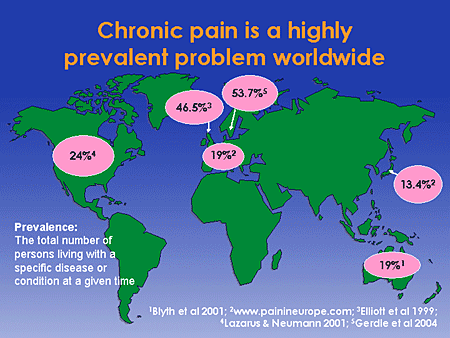Nurturing Healthy Relationships While Living with Fibromyalgia

If you’re living with fibromyalgia, you know all too well what a major impact this “invisible” illness has on every aspect of your life – right down to your relationships with friends and family, even casual acquaintances.
You may struggle to feel understood as you cope with the pain, exhaustion and emotional turmoil that go hand-in-hand with fibromyalgia. Perhaps you feel guilt as limitations make you more dependent on family members to “pick up the slack.” Family members may feel helpless seeing you in pain and be overwhelmed with bigger workloads or frustrated with unpredictable symptoms and their restrictions.

Erratic flare-ups and symptoms can also make it tough to maintain relationships outside of your family. Lack of energy may discourage you from initiating new friendships, and you may not feel up to socializing like you used to.
4 Ways to Stay Connected to the Ones You Love
But it is possible to sustain healthy relationships, even when coping with fibromyalgia’s fickle symptoms. Here are some ideas to help you keep important relationships alive, while taking care of yourself at the same time.
Nurture Rewarding Relationships. Some people may be more central to your life than others. Spend your limited energy on healthy relationships that are good for both you and the other person. If you’re involved in a demanding or unrewarding relationship, you may want to reconsider. What’s the cost of spending time with this person? Is it worth it? Focus your energy on friends and loved ones who will rally around you, offering their support even when the going gets tough. Remember, the people who love you won’t stop loving you because you have fibromyalgia.

Accept & Teach Others. Although more people are aware of fibromyalgia, many may not know exactly what it is. Educate those closest to you about your illness to foster more understanding and support. Know what you’re going to say ahead of time. It doesn’t have to be elaborate; in fact, a short, simple explanation might be best.

A big part of feeling understood may be letting go of the expectation that your friends and family – who may be mostly in good health – will understand everything that goes along with your condition. Instead, accept that each person can understand as much as he or she is able. Perhaps none of them has had to live with fibromyalgia, but many may have faced health concerns that will help them relate to at least a part of what you’re dealing with. Ask them to respect the complexity of fibromyalgia and its limitations.
Know Your Limits & Communicate Them. Be realistic about your fibromyalgia. Trying to do everything you used to do can make your symptoms worse and slow down improvement. Be clear to yourself and to others about your limitations. Don’t be afraid to ask those closest to you for assistance. And when asking for help, be specific. For example, you might ask a friend or family member to drive you to a doctor’s appointment, go grocery shopping or take on an additional household chore.
As much as possible, try not to cancel your plans with others too often. It may be helpful not to commit to anything too far in advance. And take it easy the day before an engagement.
Of course, a sudden, unpredictable flare-up can derail even the best of plans. If you’re not up for going out with friends, other ways to stay connected are phone calls (you can still have a terrific phone conversation while resting on a heating pad), texts and emails.
Do Your Part. Illness can take a toll not only on you, but on everyone close to you. It can change financial situations, the way household chores are split up and significantly cut back on the activities families can enjoy together. Recognize and acknowledge to yourself and to loved ones that your condition does have a big impact on them. Be appreciative of their support and hard work.
Fibromyalgia is a chronic illness that you face every day – it’s always nearby, making it easy to bring up in conversations. Try to talk about other subjects too. Don’t let fibromyalgia take over your time with friends.
It also helps to connect with others who are facing the same challenges and frustrations as you. The discussion section here offers an outlet besides friends and family to talk about what you’re going through. The National Fibromyalgia Association is another great resource that offers a network of support groups across the U.S.

Living with fibromyalgia doesn’t mean you have to give up happy, healthy relationships with your friends and family. By setting safe boundaries for yourself, educating and communicating with your loved ones, you can enjoy rewarding social connections, while making sure you get the care you need.





